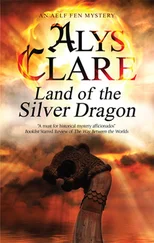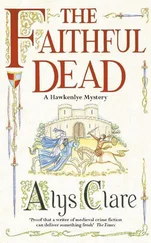Alys Clare - Heart of Ice
Здесь есть возможность читать онлайн «Alys Clare - Heart of Ice» весь текст электронной книги совершенно бесплатно (целиком полную версию без сокращений). В некоторых случаях можно слушать аудио, скачать через торрент в формате fb2 и присутствует краткое содержание. Год выпуска: 2007, Издательство: Hachette Littlehampton, Жанр: Исторический детектив, на английском языке. Описание произведения, (предисловие) а так же отзывы посетителей доступны на портале библиотеки ЛибКат.
- Название:Heart of Ice
- Автор:
- Издательство:Hachette Littlehampton
- Жанр:
- Год:2007
- ISBN:нет данных
- Рейтинг книги:4 / 5. Голосов: 1
-
Избранное:Добавить в избранное
- Отзывы:
-
Ваша оценка:
- 80
- 1
- 2
- 3
- 4
- 5
Heart of Ice: краткое содержание, описание и аннотация
Предлагаем к чтению аннотацию, описание, краткое содержание или предисловие (зависит от того, что написал сам автор книги «Heart of Ice»). Если вы не нашли необходимую информацию о книге — напишите в комментариях, мы постараемся отыскать её.
Heart of Ice — читать онлайн бесплатно полную книгу (весь текст) целиком
Ниже представлен текст книги, разбитый по страницам. Система сохранения места последней прочитанной страницы, позволяет с удобством читать онлайн бесплатно книгу «Heart of Ice», без необходимости каждый раз заново искать на чём Вы остановились. Поставьте закладку, и сможете в любой момент перейти на страницу, на которой закончили чтение.
Интервал:
Закладка:
The sow’s panicky rush through the undergrowth was, however, heard by someone other than the poachers; she took a track that went close by the monks’ settlement and even closer to the rough guest accommodation, where yet another person lay sleepless. For him, however, it was a fairly routine state, for he was very old and did not need much sleep.
The noise of the boar made hope of even an hour or two’s light slumber towards dawn quite out of the question, for the old man misunderstood the innocent sounds of the boar’s headlong flight and ascribed them to a very different cause. He lay in a cold sweat of terror for some time after the boar had gone, waiting almost without breathing for the creak of the door, the knife at his throat or — terror of terrors — the first hint of smoke like that which had come that last dreadful time.
When dawn came and he was still miraculously alive, he roused his companion and announced that they were leaving immediately. In answer to the puzzled questions — why? What is the rush? Where should we go? — he simply said, ‘He’s found us.’
And then there were no more questions; only a fast-growing fear that soon overtook his own. The pair were packed up ready to go within moments and as soon as Stephen could be persuaded to provide an escort — which, given Stephen’s urgent wish to be rid of his guests, for which he would subsequently do grave penance, took even less time — they were on their way and riding off along the road that led north-westwards.
He was losing control.
The sensation was unfamiliar for one such as he, who was meticulous both in the planning and the execution of a mission. He had not experienced failure in all the years he had been operating and it was this reputation for total reliability which, he believed, had caught the eye of the powerful man who had commanded the present task.
But things were going wrong.
For the first time in his professional life, he was indecisive and he was quietly, smoulderingly angry, for the indecision came about purely because his master kept changing his mind. Well, to be fair, he had changed it once: he had outlined the mission — and how well the man recalled that moment when his employer had announced the target! — and the man had considered the proposal, agreed that he would do it and, after the usual careful planning stage, had set off to accomplish it. Everything had gone smoothly; he had located his quarry, finalised the details of how the deed would be done and, even more important, how he would ensure a clean escape afterwards, and he had been poised to strike.
At the very last moment, the messenger had arrived to tell him to withdraw: the employer was in receipt of new intelligence and no longer wanted the mission to be carried out.
And then, purely because the man’s softly spoken fury had for a moment got the better of him, everything had started to go wrong. He always worked alone and the very presence of the messenger had disturbed him, making him act out of character. That must have been it, he told himself yet again, for what else could explain his breaking of his self-imposed rule of total silence until an operation was over? But the messenger had been there right in front of him, white-faced with the pain resulting from his own stupid clumsiness, cowering because he could plainly see the effect that the new instructions he had just relayed had had and, knowing the man’s profession and reputation, understandably terrified. The man had used the trembling messenger as a whipping boy and, for one self-indulgent moment, said, quietly but viciously, exactly what he thought about employers who changed their minds at the very last second.
It should have been all right and he ought to have got away with it. He and the messenger were in an out-of-the-way place where surely it was highly unlikely for them to have been overheard. But overheard they were: as the man had finished his brief but articulate rant, an emotion-charged silence ensued and into this silence came a small sound.
Anyone lacking the man’s long experience of survival against the odds and his talent for self-preservation might have dismissed the little noise as rats in the drains or mice in the stone walls. But the man’s acutely developed sense of hearing picked up the sound, checked it against like sounds stored in his memory and located the source. It was a very particular noise and the man knew exactly who had made it: nobody else coughed quite like that.
And that moment had led to this endless pursuit that had resulted in two deaths and would probably soon lead to two more.
Sitting on his horse in the forest clearing above the Hastings to London road and watching the five-strong party emerge from the track and set out northwards, the man wondered yet again why the pair of them had suddenly decided to run. They knew he was after them, he was quite sure of that, and he had begun to think that, if they persisted in demanding sanctuary at Robertsbridge, he was never going to get at them; this morning’s move was a surprise. He had almost missed the departure. They must have been up at dawn to have been on the road so early and it was pure luck that the man’s sleep had been restless that night, so that he was at his observation post some time sooner than he had been for the past few days.
Again he went through the possible reasons for the pair’s sudden move. This time he started further back, with the intention of trying to discover if there were some salient fact that he had left out of his considerations.
He had followed the pair to Troyes, where they had made the acquaintance of the apprentice lad. The man was quite sure they’d told him what had happened, what the old man had overheard; why else would the lad suddenly start looking over his shoulder, acting like a bodyguard, hardly letting the pair out of his sight and going about with his hand on his sword? The lad had been trying to impress the girl; of that the man was quite sure. Not that she’d have been very impressed if the man had chosen to make his attack in the open, for he would have made short work of the apprentice and his sword and dispatched him with the ruthless speed of a heavy boot crushing a cockroach.
But it was not the man’s way to attack in the open; he had got rid of the old man and the girl by firing their lodging house and then, still under cover of night, he had gone after the apprentice. He ought to have cornered him and seen to him that same night but the lad must have found a very good hiding place; the man had not been able to find him.
If he had only succeeded in finishing the business and curtailing the dangerous secret there and then in Troyes! It would have been a simple matter to go on to Paris, claim his payment and proceed on his way, putting the whole affair out of his mind. But he had been foiled again, this time by sheer bad luck: the old man ate a bad oyster at supper and, when the lodging house had gone up in flames, he had been alternately kneeling before and squatting over the privy in the yard voiding his system and the girl had been tending him.
The man was not to discover this until much later.
Although several other people were killed in the blaze, both the old boy and the girl had escaped unharmed. But, thinking them dead, he had hastened to pick up the apprentice’s trail and had followed him up to Boulogne. Somewhere along the road the lad must have become aware that he was being followed, for he had displayed all the symptoms of increasing fear. So close had the man been upon his trail that the man was quite sure the apprentice had not revealed his dangerous knowledge to anybody; there simply had been no occasion for such a sharing of confidences. In Boulogne the lad had met up with a merchant and on board the ship that they took for England, on to which the man had stealthily crept after them, the two had soon put their heads together. The man knew exactly what had been the main topic of conversation for, concealed in the dark shadows, he heard the lad speak. Eager to impress his wealthier and more sophisticated companion, the apprentice had carefully looked around him to make sure that none of the crew could overhear and then spilled out the full tale.
Читать дальшеИнтервал:
Закладка:
Похожие книги на «Heart of Ice»
Представляем Вашему вниманию похожие книги на «Heart of Ice» списком для выбора. Мы отобрали схожую по названию и смыслу литературу в надежде предоставить читателям больше вариантов отыскать новые, интересные, ещё непрочитанные произведения.
Обсуждение, отзывы о книге «Heart of Ice» и просто собственные мнения читателей. Оставьте ваши комментарии, напишите, что Вы думаете о произведении, его смысле или главных героях. Укажите что конкретно понравилось, а что нет, и почему Вы так считаете.












